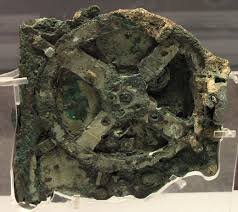Ancient Engineering Prowess
 The scientific accomplishments and engineering prowess of ancient civilisations have been consistently underestimated throughout history. Only now are we starting to fully appreciate the sophistication and depth of knowledge of our ancestors?
The scientific accomplishments and engineering prowess of ancient civilisations have been consistently underestimated throughout history. Only now are we starting to fully appreciate the sophistication and depth of knowledge of our ancestors?
One amazing example is the Antikythera Mechanism. Recovered in 1900–1901 from an ancient shipwreck off the Greek island of Antikythera, its significance and complexity were not understood until a century later when it was analysed with modern X-ray and scanning technology.
Jacques Cousteau visited the wreck in 1978 and recovered new dating evidence. The construction has been attributed to the Greeks and possibly Archimedes (c.287 B.C.- c. 212 B.C.). Technological artefacts approaching its complexity and workmanship did not appear again until the 14th century when mechanical astronomical clocks began to be built in Western Europe.
Recent findings suggest the concept for the mechanism originated in the colonies of ancient Corinth since some of the astronomical calculations seem to indicate observations that can be made only in the Corinth area of Greece. Syracuse, an ancient city in Sicily, was a colony of Corinth and the home of Archimedes, giving further credence to the theory that the mechanism originated in the school of Archimedes.
Research on the mechanism is ongoing and it is highly likely that a greater understanding of its use and complexity will further astonish the scientific community.
Short film on the Antikythera Mechanism

